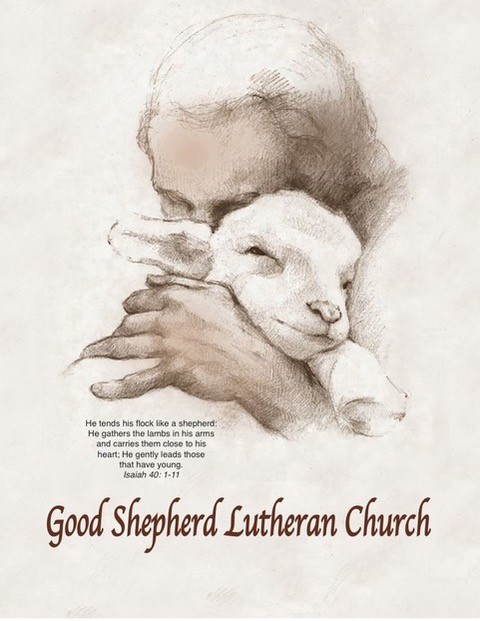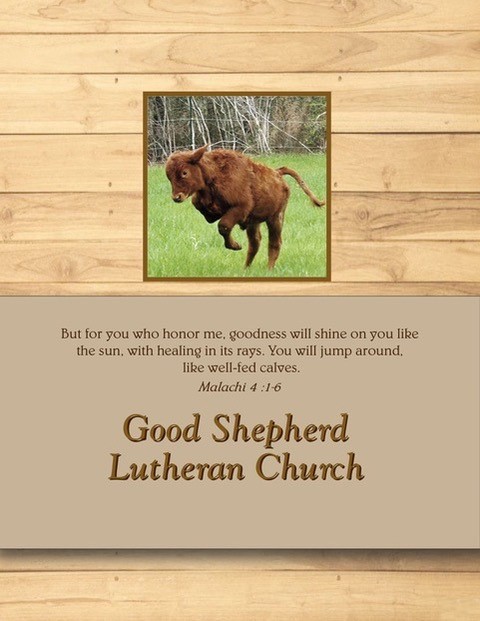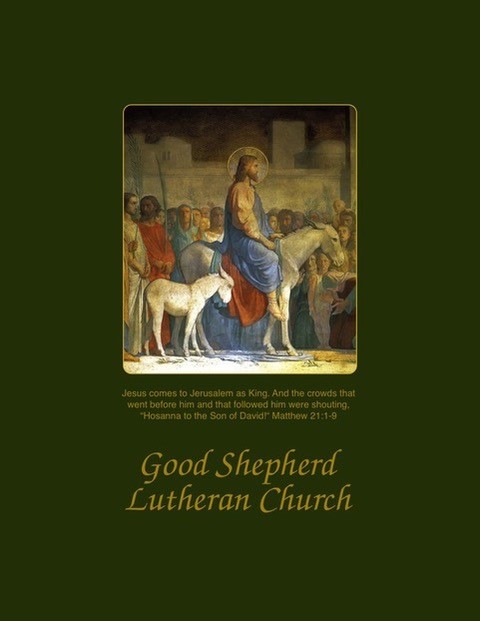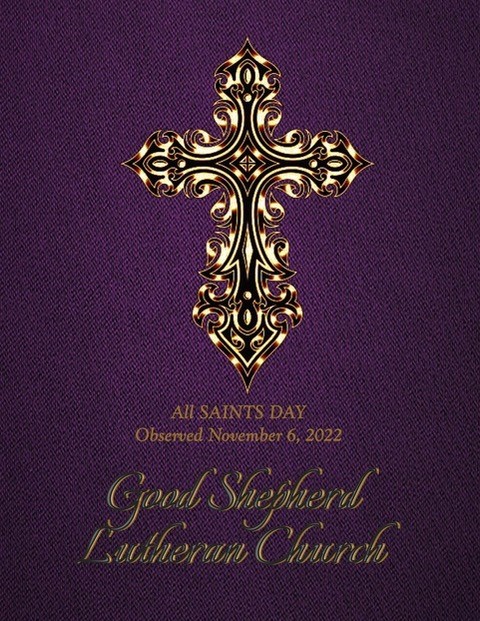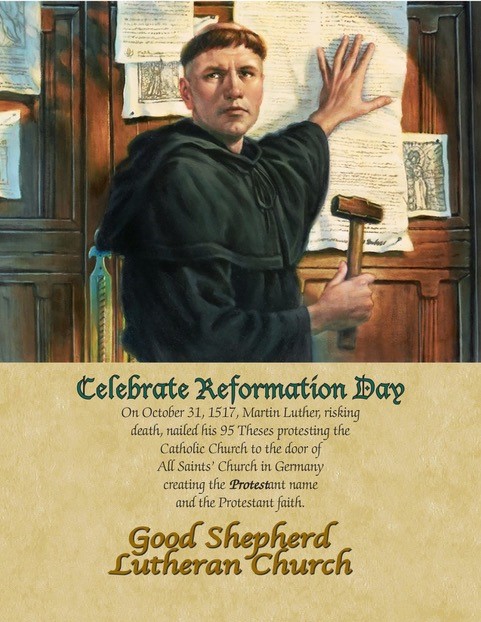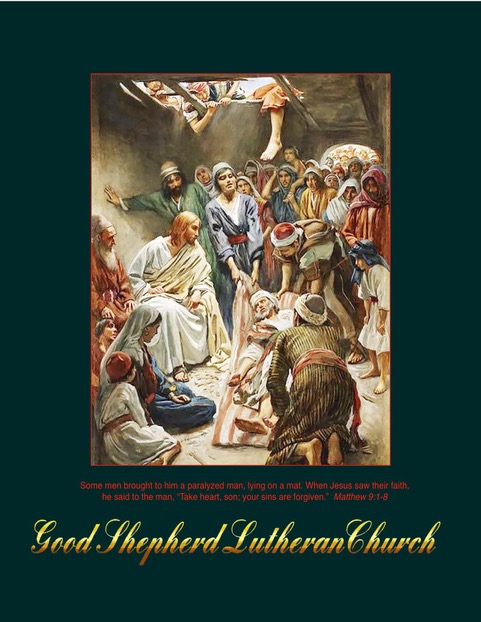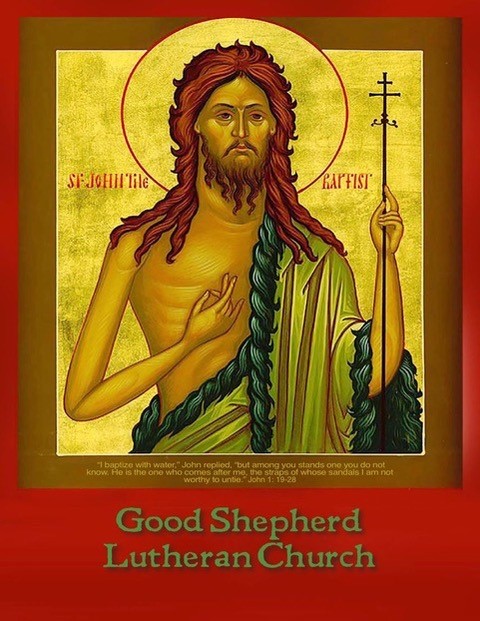
In the name of the Father and of the Son and of the Holy Spirit.
In our Old Testament Reading from the Prophet Isaiah, King Ahaz and Judah are in need of a sign from God that He will be with them in their time of great crisis. To understand the context, I’ll read the verses from Isaiah that lead up to our reading:
“In the days of Ahaz the son of Jotham, son of Uzziah, king of Judah, Rezin the king of Syria and Pekah the son of Remaliah the king of Israel came up to Jerusalem to wage war against it, but could not yet mount an attack against it. When the house of David was told, “Syria is in league with Ephraim,” the heart of Ahaz and the heart of his people shook as the trees of the forest shake before the wind.” (Is 7:1-2)
The “days of Ahaz … king of Judah” were from 735-715 BC. Ahaz was not a godly king. 2 Kings describes him this way:
“[Ahaz] did not do what was right in the eyes of the Lord his God, as his father David had done, but he walked in the way of the kings of Israel. He even burned his son as an offering, according to the despicable practices of the nations whom the Lord drove out before the people of Israel. And he sacrificed and made offerings on the high places and on the hills and under every green tree.” (2 Ki 16:2-4)
At the time of Isaiah’s prophcy, Rezin the king of Syria (also called Aram) and Pekah the king of Israel (the Northern Kingdom that’s also called Ephraim) teamed up to wage war on King Ahaz and Judah (the Southern Kingdom).
And the Lord said to Isaiah, “Go out to meet Ahaz, you and Shear-jashub your son, at the end of the conduit of the upper pool on the highway to the Washer’s Field. And say to him, ‘Be careful, be quiet, do not fear, and do not let your heart be faint because of these two smoldering stumps of firebrands, at the fierce anger of Rezin and Syria and the son of Remaliah. Because Syria, with Ephraim and the son of Remaliah, has devised evil against you, saying, “Let us go up against Judah and terrify it, and let us conquer it for ourselves, and set up the son of Tabeel as king in the midst of it,” (Is 7:3-6)
So, Isaiah and his son Shear-jashub (whose name, incidentally, means “a remnant shall return”), went out and spoke this promise from the Lord to Ahaz:
“thus says the Lord God: “‘It shall not stand, and it shall not come to pass. For the head of Syria is Damascus, and the head of Damascus is Rezin. And within sixty-five years Ephraim will be shattered from being a people. And the head of Ephraim is Samaria, and the head of Samaria is the son of Remaliah. If you are not firm in faith, you will not be firm at all.'” (Is 7:7-9)
Here, God promised the immediate deliverance of His people from the enemy coalition of Syria and Israel. He also promised that apostate Israel would come to an end sixty-five years later – something that came to pass during the reign of King Esar-Haddon of Assyria (not Syria … but Assyria).
To prove His promises, God said to Ahaz through the Prophet Isaiah: “Ask a sign of the Lord your God; let it be deep as Sheol or high as heaven” (Is 7:11). Ahaz is skeptical of all this and responds in a way that attempts to appear pious saying, “I will not ask, and I will not put the Lord to the test” (Is 7:12), to which Isaiah responds, “Hear then, O house of David! Is it too little for you to weary men, that you weary my God also? 14 Therefore the Lord himself will give you a sign” (Is 7:13-14).
And oh, what a sign He gave …
“Behold, the virgin shall conceive and bear a son, and shall call his name Immanuel” (Is 7:15).
This sign that God promised and delivered is a sign that would reach far beyond the immediate context of Judah’s temporal enemies … down through the centuries … and into eternity. It’s the sign that continues to be our assurance that God is present to care for us and to save us. The Son of the Blessed Virgin Mary is the sign and proof of God’s love for His Old Testament people and for us.
Ahaz needed a sign. We also need a sign. Just as Judah was threatened by the “smoldering stumps of firebrands” that were Israel and Syria, so are we surrounded by so many enemies.
We have our own temporal enemies that cause us to worry and fret. We see violence and crime that seems to go increasingly unchecked. We’re anxious about an uncertain economy and its effects on our personal finances and ability to put food on the table. We struggle with health problems and the effects of aging.
And there’s the increasing attacks against Christians from our godless societies that are waging an all-out war against Christian truth and godly morality – even conscripting public educators to wage that war against Christian children and physicians to lay siege to Christian families … all under the leadership of the many government officials who pay homage to the ruler of this world instead of to the King of Kings and Lord of Lords.
The temporal causes of our worry are many. We need a sign that God is with us … that God loves us … and that He’ll provide and care for us in our time of need.
We’re also assaulted by our spiritual enemies of sin and the devil. We know that we sin daily against God’s Holy Word. And even when we’ve confessed our sins, received Absolution, and should be confident that our sins are forgiven, it nonetheless seems like the devil is always there to throw those sins back in our face – constantly reminding us of all the ways we’ve rebelled against God … all the ways that we haven’t love Him … all the ways that we’ve failed to love and serve our neighbors.
Such satanic assault on our souls can cause us to worry that our sins have completely separated us from God’s love … that they’ve cut us off from His grace and mercy. And that’s the devil’s ploy. He wants us to wallow in our sin – to doubt our salvation – to doubt God’s promised deliverance – as did Ahaz.
We need a sign of God’s promise that, in spite of our sin, He loves us and is faithful to forgive repentant hearts that have been brought low by the knowledge of their brokenness and rebellion against God.
Think of the many promises God has made to us. He’s promised to be with us always (Mt. 28:20), to work all things for good (Rom 8:28), to provide for our needs (Phil 4:19), and to not give us more than we can bear (1 Cor 10:13). While we shouldn’t doubt God’s promises, our sinful flesh is weak and the deceptions of the evil one are legion.
But God has given us a sign of His love and favor … a sign to assure us that He is faithful to fulfill His promises.
God gave that sign to Ahaz even though he was wicked and faithless. In fact, God gave Ahaz free reign to choose whatever sign he wanted – a choice that Ahaz declined in a show of false piety. Ahaz had already come up with his own plan to try and save himself. He made an alliance with the horribly violent and wicked Assyrians … which did come to his aid – destroying both Israel and Syria … only to turn on Judah as well, ultimately.
But in spite of the foolishness and unbelief of Ahaz, God gave the sign … the sign of all signs that would be the comfort and assurance of God’s love throughout all the ages since: “Behold, the virgin shall conceive and bear a son, and shall call his name Immanuel [“God with us.]” (Is 7:15) … the sign that was fulfilled by the Incarnation of our Lord Jesus Christ in the womb of the Virgin Mary … Jesus is our Immanuel … God in human flesh come down from heaven to dwell among us.
The miraculous conception and birth of Christ is the sign of God’s love and favor for us par excellence … the sign that He would save us from our enemies of sin and death. And that’s because Jesus took on human flesh so that He could be nailed to the cross as the atoning sacrifice for our sins. Consider that. Since God didn’t withhold even His only-begotten Son from us, then we can be confident that there’s nothing good He’ll withhold from us. Jesus was born, suffered, and raised in His flesh so that as He lives, we also might live eternally.
Jesus is the Sign of God’s love, faithfulness, and forgiveness. And because Jesus is the fulfillment of all of God’s saving promises, our hearts can be at peace … knowing that our sins are forgiven in Christ. And until that day when we enter our heavenly rest, Jesus continues to be Immanuel, God With Us – with us by His Word and Spirit … with us in His Holy Sacraments … to care for us and provide for us in this difficult world of sin.
Next weekend, we will celebrate the long-anticipated Christmas Feast. And while we certainly enjoy the time off, the rest, the presents, and the family and friends, our greatest joy and the very purpose for our celebration is the Sign that God has given us: “Behold, the virgin shall conceive and bear a son, and shall call his name Immanuel” (Is 7:15) … Jesus … God With Us … for us and for our salvation.
In the name of the Father and of the Son and of the Holy Spirit.
Pr. Jon Holst
